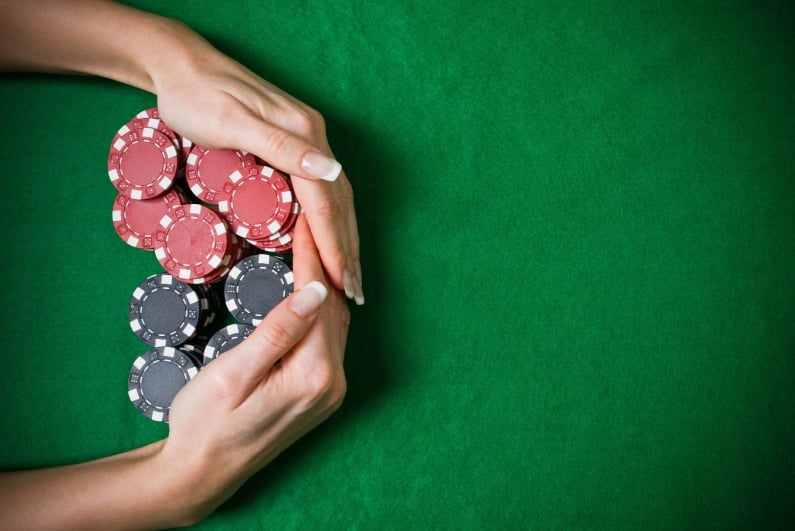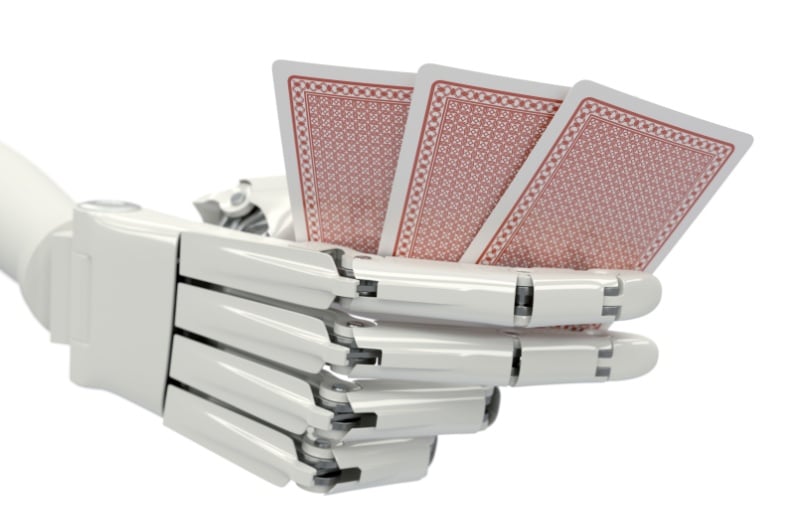Sexism
Of all the things I do as part of my poker career, playing online has always been my favourite. However, coaching these days is a very close second, as my students are all a lot of fun, and I get almost as much of a buzz from their successes as I do from my own. One of the most fun students I currently coach is a female gamer who makes her living from streaming and pay-for-access content. I have permission to quote her in this article but not to name her, so let’s call her Elle (not her real name obviously).
In our first session, Elle told me with a bluntness I came to realise was one of her defining characteristics that she wasn’t at all sure I was up to the job of coaching her, but she’d worked her way through a list of coaches she believed were more qualified and found them all quite useless. She followed that with an apology for her bluntness, but said if we were to work together, I’d have to get used to it, because she was, in her words, “very much on the spectrum.” She said she never meant to offend, but often did, so she liked to keep social interactions to a minimum, and lived a reclusive life free of attachments.
Elle only plays poker online, recreationally, with no aspiration to play professionally. The main reason she wanted coaching was the stakes she played for had to be meaningful to make it interesting, but she was losing more than she wanted to lose on a hobby.
My bust out was celebrated by the table, but in truth nobody was happier at that moment than me.”
She said she’d tried live poker once, and found it a harrowing experience. “From the moment I entered the poker room, I felt like all eyes were on me. At my table, everyone wanted to talk to me, and insisted on doing so, even though I made it clear I was there to play not to chat. When I did so, the mood turned quite hostile, as if I was breaking some sort of unwritten rule that you have to engage in mind numbingly dull chit chat. When I refused to engage, the conversation moved from at me to around me, as they discussed my appearance, personality and perceived general unpleasantness using openly sexist language as if I wasn’t there or couldn’t hear them. My bust out was celebrated by the table, but in truth nobody was happier at that moment than me. So no, I will not be trying live poker again.”
Elle is not the only female player I have coached who feels this way, even if she’s the one who expresses the sentiment the strongest. The others echo her sentiment that any time they have tried to play live, they didn’t enjoy the attention that was lavished on them purely because of their gender. There are of course many other women who enjoy this sort of attention, or at least find it tolerable, but in my experience for every one of them there are several who don’t, and this I believe is a major reason far less women play live than online, and in particular far less young women. An early conversation with another female friend who plays primarily (but not exclusively) online tipped me off to what could be called unintentional or even well intentioned sexism. She said it grated on her when she played live when almost every guy seemed to take it as a given she would want to flirt with them, and that they felt entitled to engagement and interaction when often she just wasn’t in the mood to do anything other than play cards. Even guys being overly friendly can be unwanted extra attention when all she wants is to be treated the same as any equally shy or socially awkward male player.
Ageism
Moving onto another ism, arguably the most socially acceptable of all, at least in poker, the older I get, the more acutely aware I become of ageism in poker. I first became very aware of it over a decade ago when the guy in charge of sponsorship at a major site asked me to recommend some Irish candidates for his site to potentially sponsor. The requirements he said were Irish, someone was an online winning player but also played a lot live, was active on social media, and was comfortable giving interviews. When I pointed out I was (at the time) the biggest Irish online winner, with the most followers on social media, and thought I ticked the other boxes too, he told me
You’re perfect apart from one thing: we need someone under the age of 30.”
In recent years, the only time I really think about ageism is when I play live poker, because it’s the only time I encounter quite a lot of it. When my friend Simon Wilson won the Irish Open recently, I hung back from including myself in his winner’s photos as I was acutely aware how incongruous I would look in a sea of twenty somethings, but when Simon shouted ”come on Dara get in the photo” I relented. Within what seemed like less than a minute of me posting the photo online, the meme Lord himself Barry Carter was right in there with this:

The peculiar thing about ageism is that I rarely encounter it from the younger generation. If my age ever comes up with my genuinely young friends, it’s generally in a positive context, like recognition of my longevity in the game, or positive comparisons with my age peers at my continued passion for the game. I feel an affinity with younger players with a genuine passion for poker and life I don’t really feel with many of my age peers. I have coached or mentored over half the players in the photo. The ones who seem most convinced my age is a negative to be commented on or joked about and I should be slowing down or shying away from the limelight are those in or around Barry’s age. Now of course I understand that Barry is just being Barry, poking fun at everyone and everything, but the fact it seems to be more socially acceptable to do so on grounds of age over, say, gender, sexual orientation, or ethnicity does tend to reenforce my belief that ageism is generally seen as more acceptable than sexism, homophobia, or racism.
Online poker, with the anonymity it offers, appeals to groups that don’t want to be singled out for one aspect of their identity. As such, minorities in our game will probably always feel more comfortable playing online as opposed to live. As I said at the start of this piece, it has always been the thing I enjoy most in poker. Live poker used be my second favourite, but has slipped down in recent years towards the bottom, to the point I’m seriously considering giving it up completely. When I play online, I never have to think about my age, but when I play live, I’m constantly reminded of it. Elle and many others would say the same about their gender, as long as live poker aficionados continue to home in on one aspect of someone’s identity, that demographic is Iikely to remain underrepresented.




